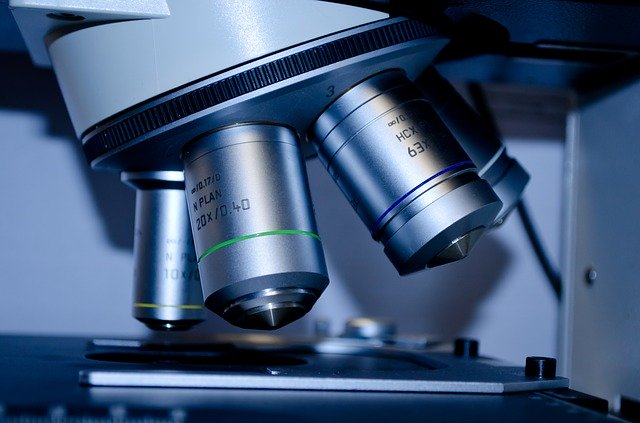Because aging is inevitable and, for some people, frightening, it’s no surprise that myths abound.
Physical deterioration is inevitable
This isn’t entirely fake. As we age, our body wears out for decades of use. However, physical deterioration doesn’t have to be complete and people can often slow it down.
As WHO explains, “Increased physical activity and improved diet can effectively address many of the problems often associated with old age.” These problems include reduced strength, increased body fat, high blood pressure and reduced bone density.
Some research suggests that simply waiting for physical deterioration increases the likelihood of someone physically deteriorating.
Older adults should not exercise
From the previous section, it’s clear that this is a myth. According to an earlier article in Neuropsychobiology, staying active can increase muscle strength, reduce fat and improve mental health.
Some people think that once they reach a certain age, there is no point in exercising because they believe it will not provide them with any benefit. This is another myth. In one study, researchers subjected 142 adults in their 60s to 80s to a 42-week weightlifting regimen.
Scientists found that the course increased “dynamic muscle strength, muscle size and functional capacity.”
Older adults need to sleep less (or more)
Some people believe older adults need to sleep more than younger adults, perhaps because of the stereotype that older people enjoy a nap. Others say older adults need to get less sleep, which could be due to the stereotype that older adults get up early in the morning.
These myths are relatively difficult to unravel because there are many factors involved. It is certainly true that older adults have more difficulty falling asleep and that their sleep is often more fragmented.
This could help explain why some older adults need to take a nap during the day. As the human body changes with age, it can alter circadian (daily) rhythms.
This, in turn, can affect sleep. The relationship is also multifaceted: if a person’s circadian rhythms are interrupted, it can influence other aspects of their physiology, such as hormone levels, that can also affect their sleep.
Only women get osteoporosis
Osteoporosis is a condition in which bones gradually weaken. Some people think it only affects women. This is not true; can affect both sexes and people of any age. However, osteoporosis is much more common in older people, white people and women.
According to one general article, the International Osteoporosis Foundation estimates that, globally, about 1 in 3 women over the age of 50 have osteoporosis, and approximately 1 in 5 men will experience a osteoporosis-related bone fracture in their lifetime.
As you age, your brain slows down
The term cognitive impairment refers to a gradual decrease in mental functioning with age.
Cognitive decline is not inevitable, regardless of the ancient myth that older adults experience a mental slowdown. Most importantly, there are ways to reduce risk.
In 2015, the Alzheimer’s Association assessed evidence of modifiable risk factors for both dementia and cognitive decline. His report, presented to the World Dementia Council, explains that “there is sufficient evidence to support the link between several modifiable risk factors and a reduced risk of cognitive decline.”
They identified that maintaining regular physical activity and controlling classic cardiovascular risk factors, such as diabetes, obesity, smoking and high blood pressure, were strongly associated with a reduced risk of cognitive decline.
There’s no point in quitting now.
Whether it’s a genuine myth or just an excuse, some older adults say there’s no point in quitting smoking at “their age.” This is not true. As the NHS clearly explains:
“No matter how long you’ve smoked and how many cigarettes you smoke a day, your health will start to improve as soon as you quit smoking. Some health benefits are immediate, others longer term, but what matters is that it’s never too late.”
Sex is rare or impossible as you age
Some people believe that older adults lose the ability to enjoy sex and that their sex organs become unsuitable for their purpose. This, fortunately, is a myth.
It is true that the risk of erectile dysfunction (ED) and vaginal dryness increases as people age, but for most people, these are not insurmountable problems.
Sildenafil (Viagra) and lubricants or hormonal creams can do wonders in many cases. However, before taking Viagra, it is essential to speak with a doctor as it is not suitable for everyone.
An article in the International Journal of Clinical Practice indicates that about 0.4% of men in their 18s and 29s experience erectile dysfunction, compared to 11.5% of men age 60 to 69. However, turning that statistic around makes it much less overwhelming: nearly 9 out of 10 60-year-olds don’t have DEs.
Sex between older people may be less fast and furious, but that’s not necessarily a bad thing. As one author writes, “Ageing does not necessarily interrupt a healthy sex life, but it does require redefining its expression.”
Taking home
In general, most of the myths surrounding age seem to focus on inevitability. People believe it is inevitable that they will gradually fall apart in dust as their lives become increasingly unbearable, boring, passionless and painful.
Although certain aspects of health may decrease with age, none of the above are unavoidable to all. As we have discovered, a positive psychological perspective on aging can benefit the physical aspects of aging.








